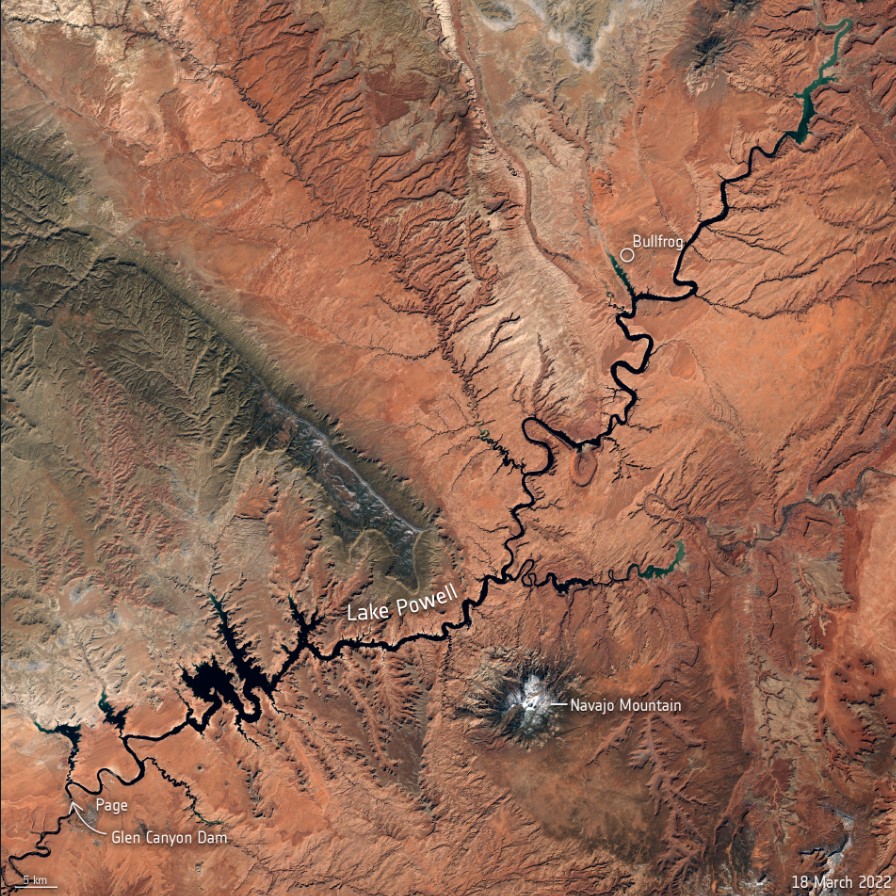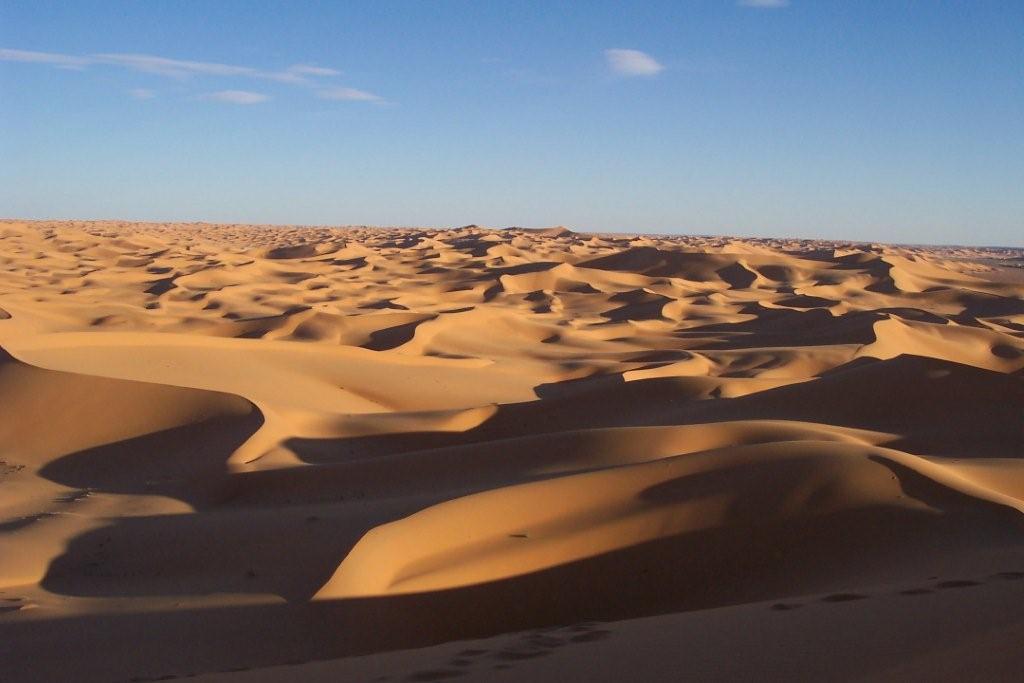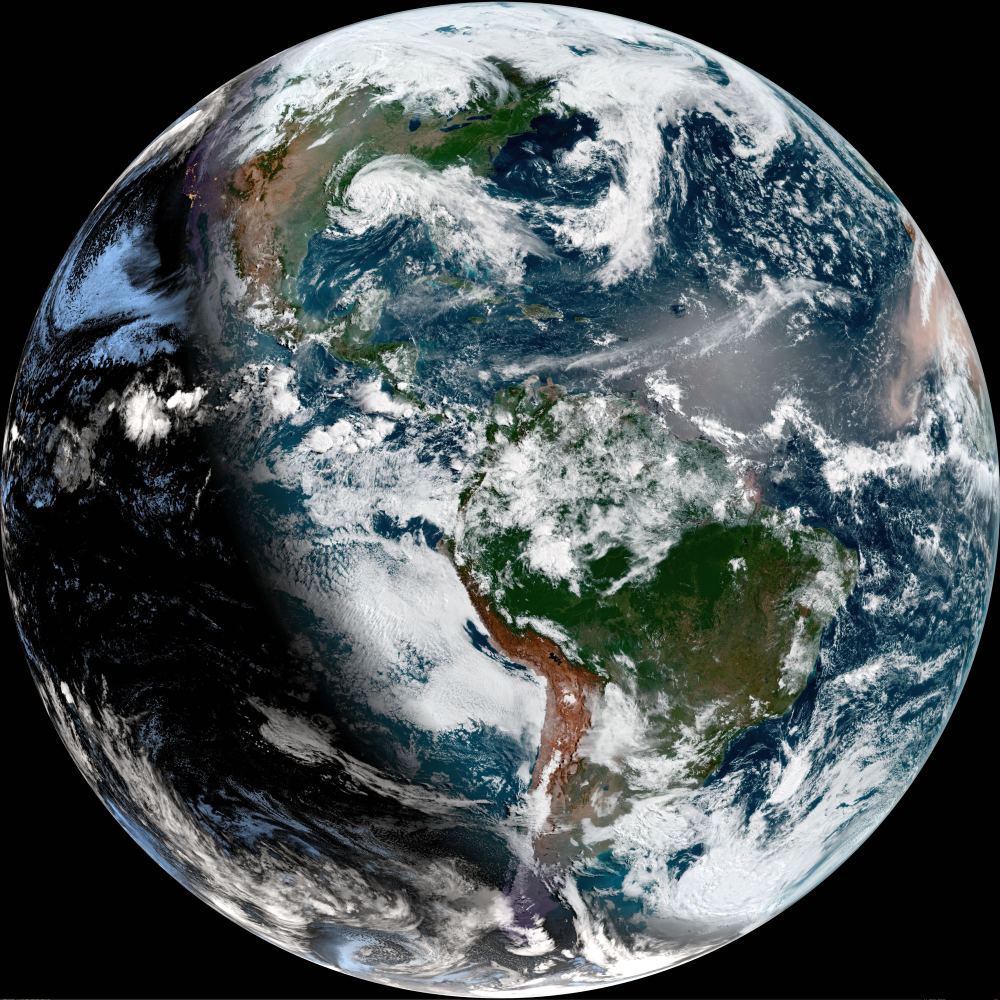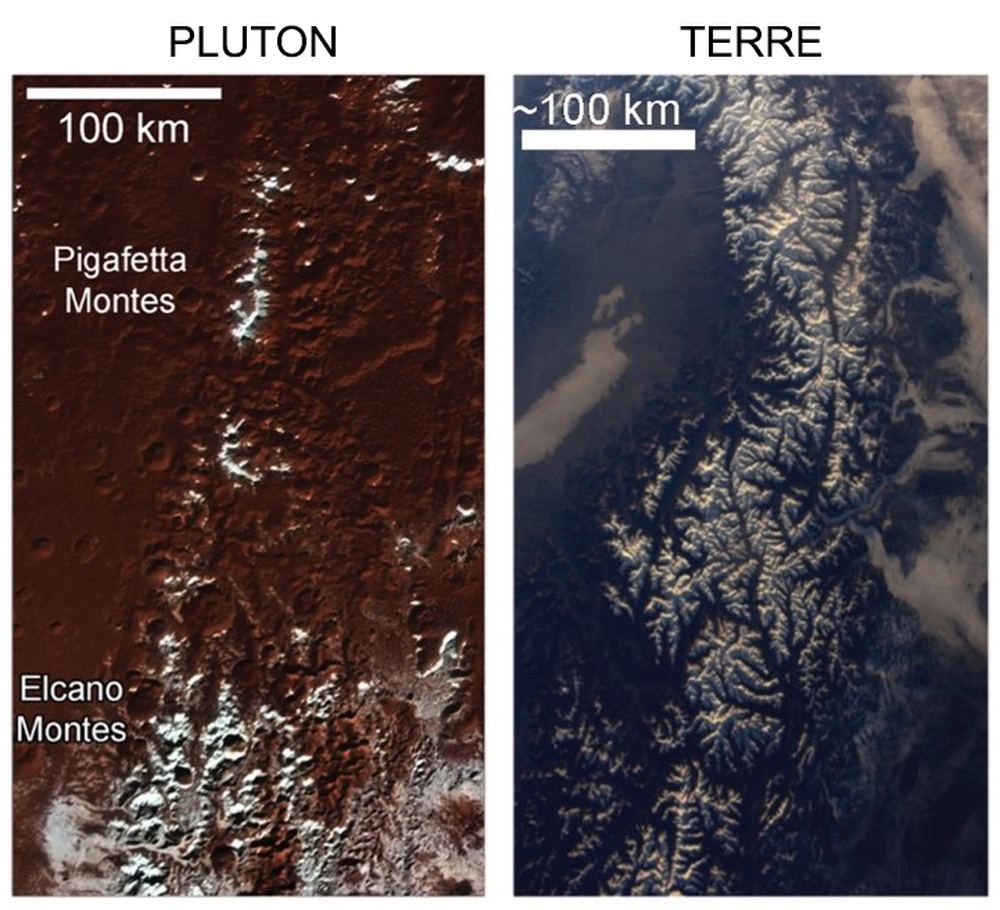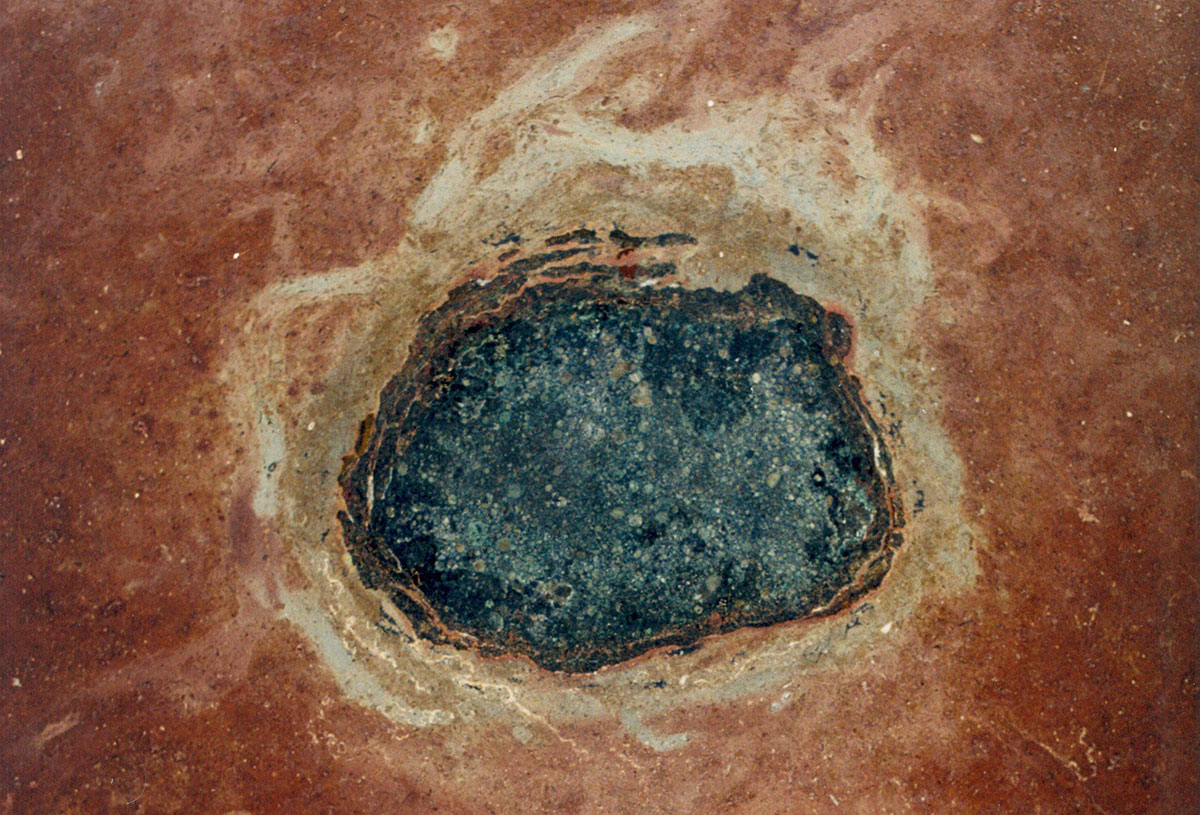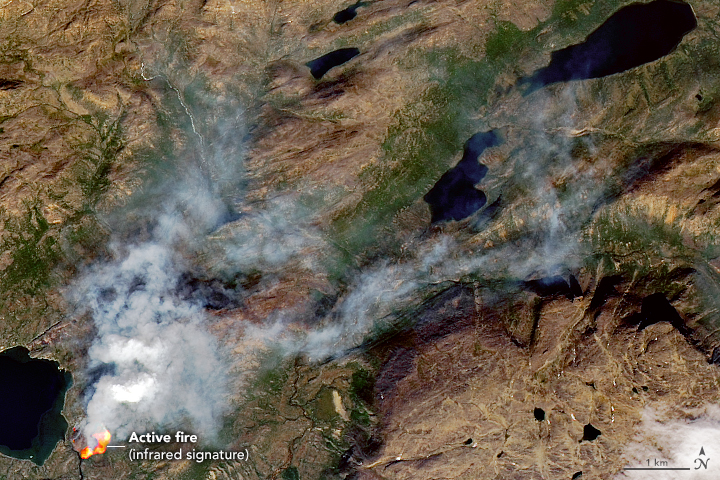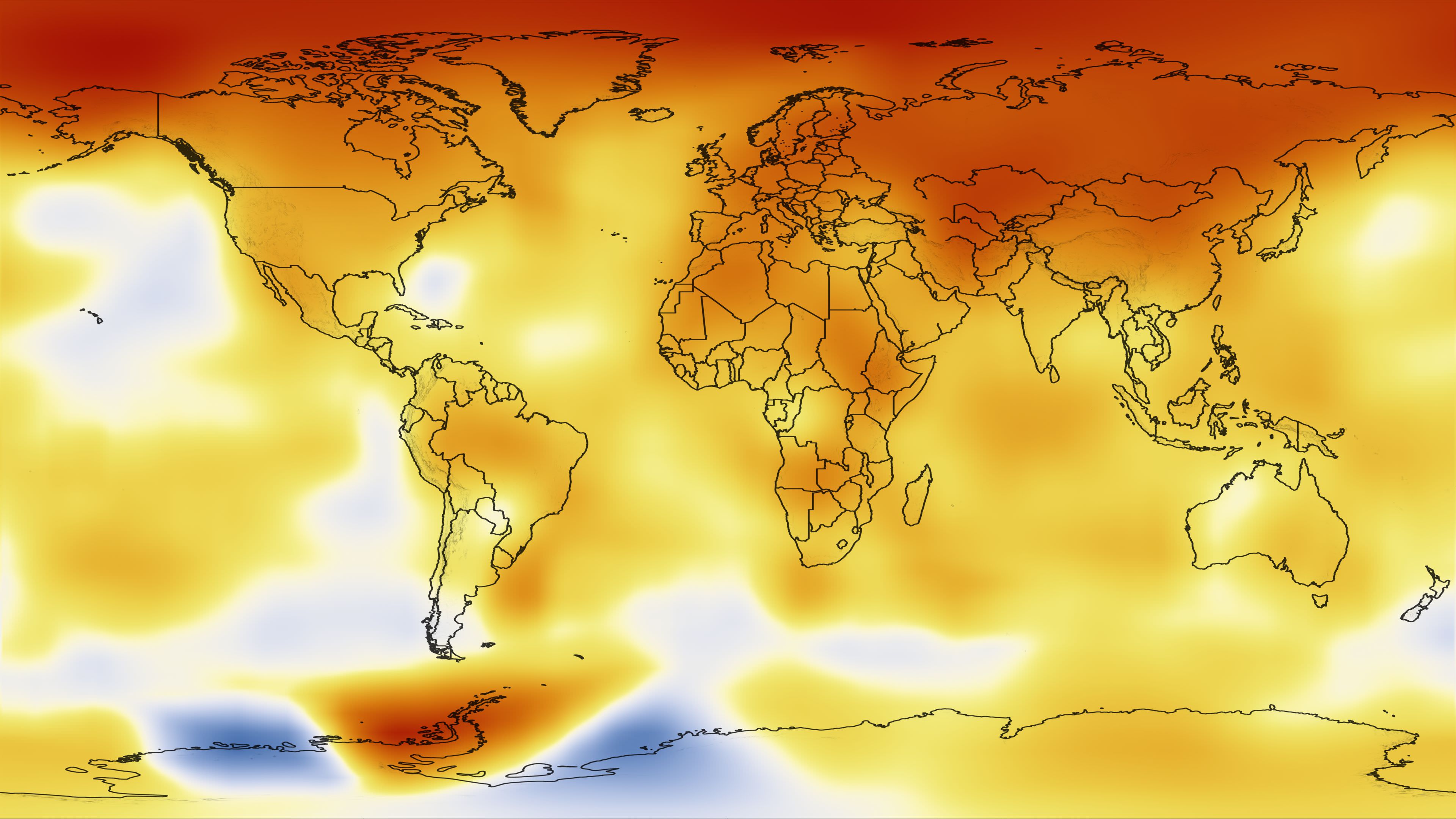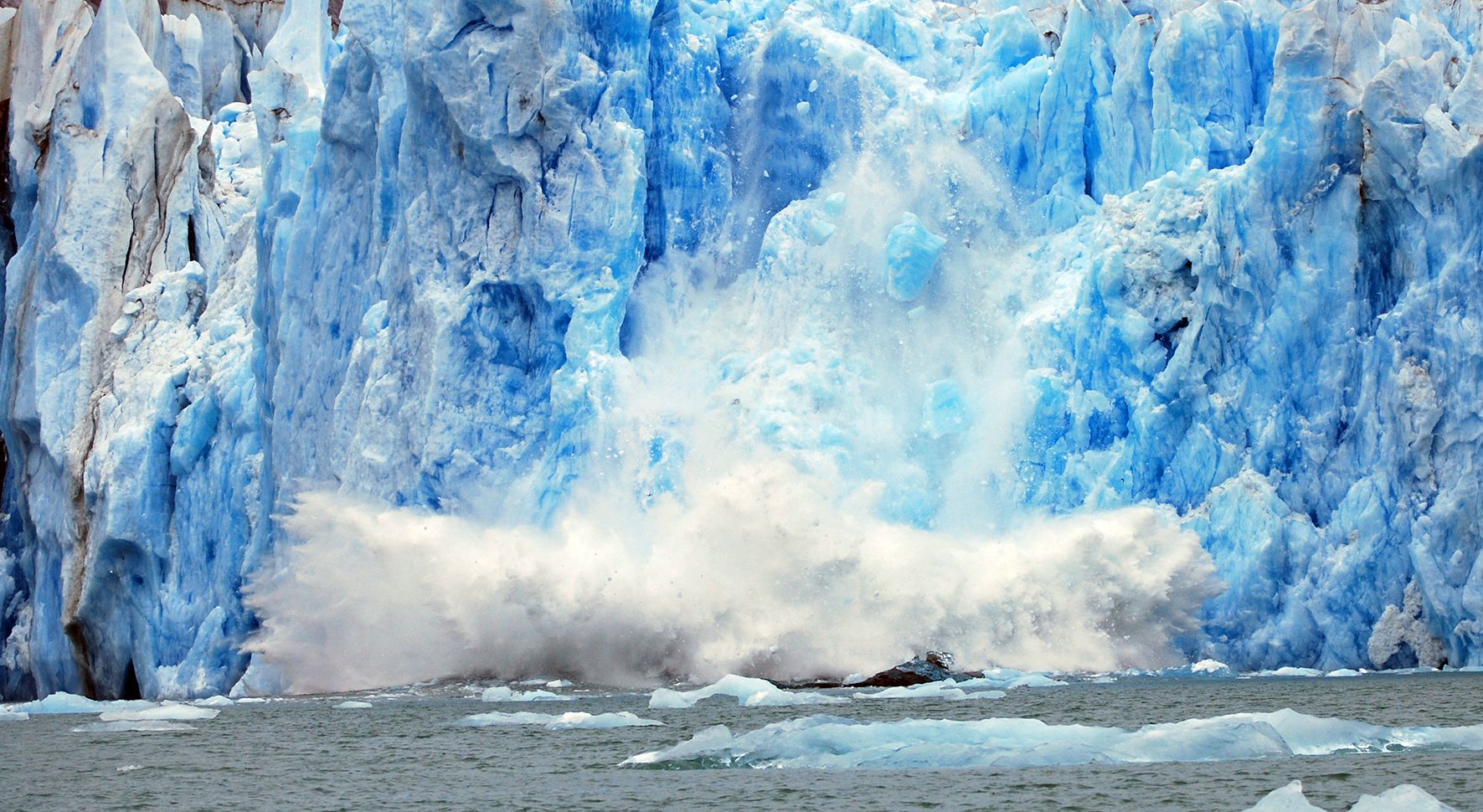The two largest reservoirs in the United States are now at their lowest levels since they were first created. After several decades of drought – with the past two years classified as intense drought in the US Southwest — both Lake Powell and Lake Mead are shrinking. Recent satellite images show just how dramatic the changes have been, due to the ongoing the climate crisis..
Continue reading “Because of Extreme Drought, Lake Powell is Barely a Lake Anymore”Because of Extreme Drought, Lake Powell is Barely a Lake Anymore
